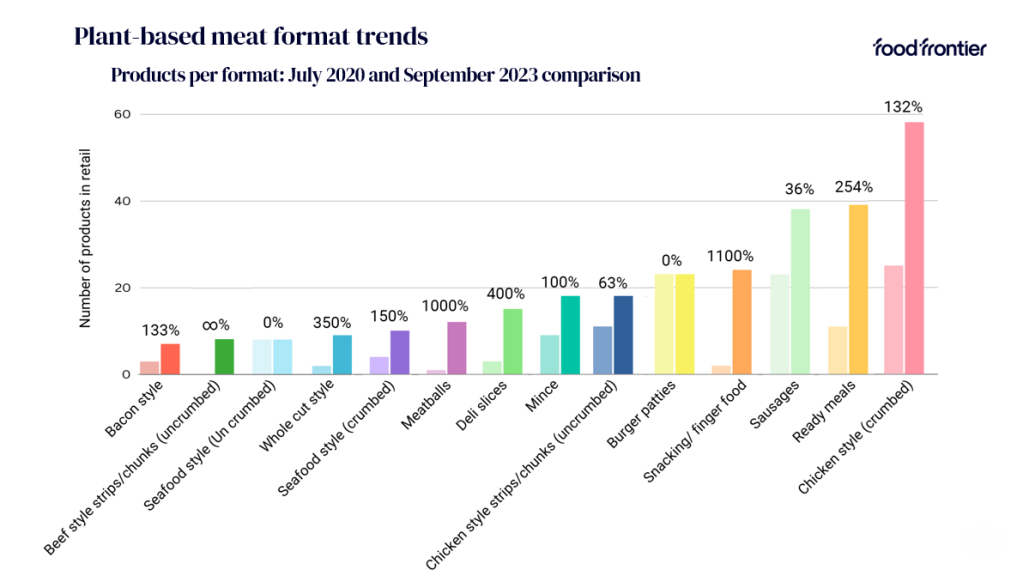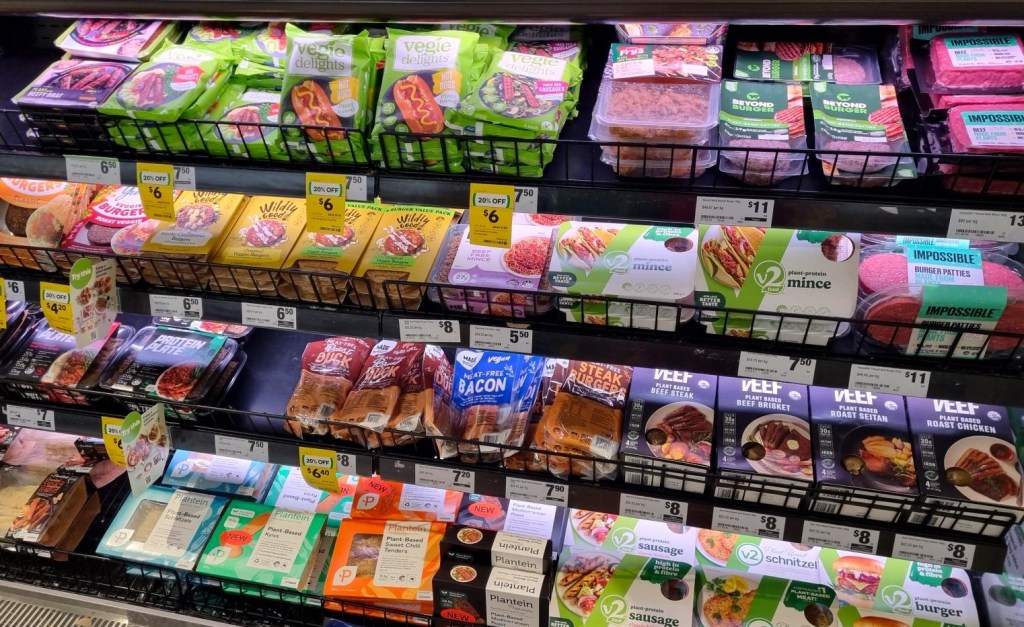The number of plant-based meats in Australia supermarkets has tripled over the last few years from less than 90 to nearly 300, according to data from alternative protein think tank Food Frontier.
The findings are the results of an audit of major supermarkets in Melbourne and Sydney performed by Food Frontier of plant-based meat products retailed between July 2020 and September 2023. The think tank found that the plant-based meat category in retail has expanded significantly in both volume and diversity, increasing from less than five brands made by Australian/NZ businesses in 2017 to over 30.
The data found that Australian and New Zealand brands currently comprise two-thirds of products in major retail in Australia—up from less than half in 2019—with international brands like Beyond Meat, Impossible Foods, and Fry Family Food holding their own.

The data also shows that consumers are looking for convenience when buying plant-based meat products, resulting in a significant increase in the supply of formats like schnitzels and nuggets, mince and meatballs, along with deli slices and finger foods.
Food Frontier added that consumer interest in products that can be incorporated into a variety of dishes has resulted in more versatile, functional formats hitting shelves, like beef-style strips and chunks, and whole cut style—however, there are still fewer than 10 products of each in-market.
Commenting on the state of the domestic industry, Food Frontier CEO Dr Simon Eassom said: “We know that the early adopters of plant-based meats in Australia and around the world are flexitarians—they are the cohort, used to centre-of-plate proteins or protein-based dishes, that are now looking for healthier alternatives to those conventional protein sources and for products that mimic what they’re used to buying.
“When plant-based options first appeared on our shelves in Australia about six years ago, they were mostly in the form of utility foods: sausages and burgers. There were probably too many manufacturers all providing the same style of product and, rightly so, customers have voted with their taste-buds and their wallets.
“This category has seen zero increase and some contraction in terms of the number of manufacturers, with the lion’s share of the market now dominated by a few strong brands. The data gathered by Food Frontier indicates that other formats that can be incorporated into a much wider range of dishes are gaining favour and manufacturers are responding accordingly.”

Eassom also spoke about the trends of consolidation in the local industry and product formulations.
“We expect the category to continue to evolve and we wouldn’t be surprised to see further changes by way of company integration, and product formulations. This is a food industry that’s continuing to innovate and adapt to consumer tastes and budgets, plus the availability of more sophisticated ingredients will help manufacturers improve products to meet expectations around taste and texture as well as price.”
In 2019, Food Frontier and Deloitte Access Economics estimated the domestic plant-based meat industry could be worth $3 billion by 2030, while Australia’s national science agency CSIRO predicts the overall plant protein category will reach $6 billion by 2030.
Food Frontier says it plans to release its third state of the industry report in mid-2024. Those interested in the ANZ plant-based category can also reference the think tanks’s recently published company map for a deeper understanding of product breakdown by regions.
To stay up-to-date on the latest industry headlines, sign up to Future Alternative’s enewsletter.
Posted on:


